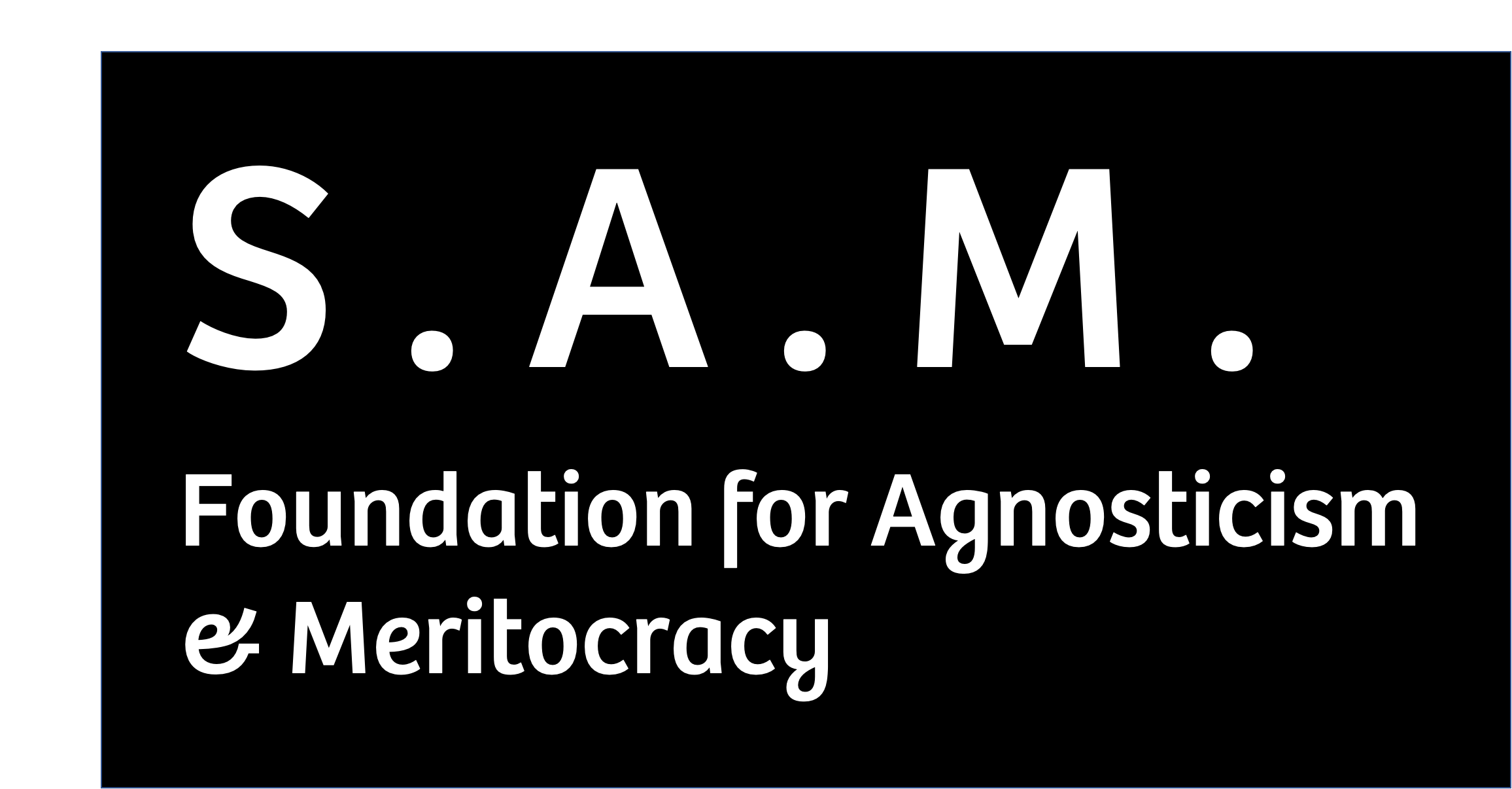Nieuws
Feminist Justice in France
We received the news that the amendment on marital captivity tabled by Senator Nathalie Delattre was not passed in the French Senate. Although it has not been added to President Macron’s Law to Strengthen Republican Principles, we are very pleased to have placed marital captivity – the forced continuation of a marriage against the woman’s will – on the French political agenda.
Femmes for Freedom (FFF) is immensely grateful to Fanny Weiersmuller – Sacepe, who has helped FFF to place this crucial issue on the agenda in France.
We do not see this as a defeat, but as an accomplishment! We have brought this matter to the attention of French politicians and the public debate, and opened a channel to raise awareness of marital captivity and discuss it further in order to take additional steps towards the recognition of marital captivity as violence against women. The statement of the Senate was:
« Évidemment, cet amendement, tel qu’il est rédigé, ne peut pas être voté, mais il a le mérite d’ouvrir le débat. En droit étranger, le divorce n’a pas les mêmes conséquences qu’en France. C’est une vraie difficulté. Quoi qu’il en soit, je me range à l’avis de la commission. Il y aurait quelque chose à faire, mais c’est compliqué. » – M. Jean-Yves Leconte (Socialiste, Écologiste et Républicain).
Translation:
“Obviously, this amendment, as it is written, cannot be voted, but it has the merit of opening the debate. In foreign law, divorce does not have the same consequences as in France. This is a real difficulty. In any case, I agree with the opinion of the committee. There must be something done, but it is complicated.”
We are very optimistic and we will put all of our efforts to convince French politicians that this is an important matter!
The debate in the senate has also alluded to important arguments of the opposition that we, Femmes For Freedom, must answer and clarify:
“This amendment would be an excessive infringement of religious freedom. It cannot be compared to section 433-21″– Mme Jacqueline Eustache-Brini (Les Républicains).
We strongly disagree with this argument, as it is a common misconception when discussing the marital captivity. It is not an infringement of religious freedom when the practices are a clear aggression, oppression, violence and discrimination towards women and girls. This bill that you are putting forward, tackles the issues of virginity certificates, forced marriages, and polygamy, which are practices that are inspired and justified on religion and culture. Marital captivity is a forced marriage insomuch as it is the forced continuation of a marriage. In other words, how can you combat forced marriages if you don’t include marital captivity in this bill? The same women who are forced into marriage are also forced to stay married. The ‘loi séparatisme’ recognizes and combats the forced entrance to marriage, however, how does it not recognize the forced continuation of a marriage as violence against women?
To obtain a religious divorce in accordance with Islamic rules, men are awarded the unilateral right to end the religious marriage with their spouse. While women are required to ensure the cooperation of the husband in order for their religious marriage to be dissolved. The woman in this situation is the only person being oppressed in the name of religion and culture.
The right to marry and divorce is a basic human right. Marital captivity represents a clear violation of international treaties that protect human rights and women’s rights. This includes the violation of articles 8 and 12 of the European Convention on Human Rights (ECHR), article 16 of the Convention on the Elimination of all Forms of Discrimination Against Women (CEDAW), and article 32 of the Istanbul Convention. All of them signed and ratified by France.
Article 17 of the ECHR states:
“Nothing in this Convention may be interpreted as implying for any State, group or person any right to engage in any activity or perform any act aimed at the destruction of any of the rights and freedoms set forth herein or at their limitation to a greater extent than is provided for in the Convention.”
In other words, it aims to prevent the misuse of the law, and it’s commitment to towards democratic values. By stating that banning marital captivity is an infringement on freedom of religion, you are dismissing, misinterpreting, the duties and obligations stated in the convention.
Humans have rights, religion does not. With these arguments and with these test cases we have convinced the Dutch government and parliament, to recognize marital captivity as violence against women. Marital Captivity does not stop in The Netherlands, it also exists in other countries. We women from religious communities ask the French state to listen to us. Similar to the three amendments concerning violence in the private sphere that have been passed in this bill; virginity certificates, forced marriages, and polygamy, martial captivity should be regarded in the same light and not as a freedom of religion. If the bill combats those three aggressions, it must also combat marital captivity. Because one does not exclude the other. Marital captivity occurs jointly with other harmful practices such as the three you are combatting. Most importantly there is a direct causality with forced marriage and polygamous marriages. Without legal secular instruments women are forced to go to underground mullahs and sharia courts.
Messieurs sénateurs and Mesdames sénatrices the Law to Strengthen Republican Principles has as a clear purpose to combat parallel communities and segregation. By not recognizing marital captivity as violence against women and girls, you are by causality promoting polygamy, forced marriages, and the use of underground and illegal instruments for women to achieve freedom and their basic human rights.
“In the French Republic, no woman is forced to stay married since all women can ask a judge for a divorce, even without their husband’s agreement. Let’s stick to the law.”– M. Gérald Darmanin (La République En Marché).
In a situation of marital captivity, the woman will be able to be granted a civil divorce without her husband’s agreement. However, the woman remains married under religious law and in some cases under family law of the country where the marriage took place. This is often the country of origin of at least one of the marriage partners. This becomes an unsafe and precarious situation .
Suppose that Fatima has married in Pakistan where the civil law is equivalent to religious law. If Fatima marries – against her will or willingly – and returns to France where she resides, she must register her marriage. Her Islamic marriage is then recognized by the country and becomes an official French marriage. She is not happy with her marriage and wants to submit a divorce. For this procedure she goes to French court and receives a civil divorce verdict. This entails a secular divorce due to the fact that Sharia law is not applied. She is stuck in her religious marriage that she does not wish to continue, and for her to receive a divorce in Pakistan her husband must cooperate.
Jasmine is a third generation Iranian woman in France. She wants to marry Ali in Paris and they marry according to French civil law, but if they want to travel back to Iran to see their families they must marry through Islam with a mullah who is recognized by the Iranian Embassy. With that religious marriage certificate they can go to the Iranian embassy and register it. Iran does not recognize secular marriages, one must marry according to Sharia law.
Let’s suppose Jasmine wants to divorce. She goes to French court and its granted a civil divorce, but her marriage in Iran still exist since her secular divorce in France is not recognized there. Ali denies her the divorce, leading Fatima to endure marital captivity.
In both cases, under patriarchal religious laws and religion-based family law; divorce is prerogative for men. Jasmine and Fatima are confronted with the religious norms, which are embedded in the family and penal law of such country. This contributes to situations in which they have to ask official permission from their husband to travel and/or renew their passport, which some will not allow because the male guardianship still exists/ and is embedded in the law of non-EU countries, which has an impact on women from Muslim communities.
Furthermore, if Fatima or Jasmine both enter a new relationship, their former partners which they are still married to, under Pakistani and Iranian law (Islamic/ Sharia law), can file a case against them for adultery or bigamy. This can result in penal prosecution or penalties such as corporal punishment, honor violence and killings, and most importantly they can face the death penalty. And do not forget the stigma.
However, their husbands can continue their life with no restrictions or oppression, they are able to marry whoever they want. Due to the fact that family law in their respective countries allows them to have polygamous marriages. If marital captivity is not recognized by France, the state cannot combat polygamy, since one does not exclude the other.
Marital captivity denies the woman’s free and full autonomy to live and shape their life according to their own wishes. They are discriminated against, oppressed and they are placed in precarious situations where they lives are put in danger. This includes the violation of articles 8,12, and 17 of the European Convention on Human Rights (ECHR), article 16 of the Convention on the Elimination of all Forms of Discrimination Against Women (CEDAW), and article 32 of the Istanbul Convention.
Is this what you want Messieurs sénateurs and Mesdames sénatrices? Do you accept that Muslim women are regarded as third class citizens? Do you not want to protect us under Secular law? Do we gave to go to Sharia courts in the United Kingdom or to underground mullahs? Are you willing to promote and encourage parallel communities and illegal orders?
This debate in the Senate and Parliament is the moment to change this. If you want to combat all this you must recognize marital captivity. No woman should be forced to stay married because men enjoy more rights in religion. We demand equal rights. If religion does not provide us with equal rights, we need the intervention of the Secular State for our human rights.
“In Judaism, there is a specificity, which is called the ‘get’ and which is a religious divorce. How could we, in the name of the law of the Republic, intervene before a rabbinical court to demand that it pronounce a divorce?” – Mme Nathalie Goulet (Union Centriste).
Marital captivity does not only occur in Islam, but it is prevalent in different religious traditions, such as, Judaism, Catholicism, and Hinduism. A valid divorce under Jewish rule is obtained when the husband gives their wives a get. Just as in Islam, Hinduism and Christianity, if the husband does not cooperate or offer her a get, she is forced to stay married against her will and becomes an agunah, a chained wife. The husband will be able to continue his life according to his wishes, however, the wife will remain confined and not be able to re-marry.
Agunah is the biggest issue in the women’s rights movement in Israel. The state of Israel has taken measures to combat this issue by recognizing marital captivity as a criminal offence.
We believe that through a holistic and practical approach, that is, through the recognition of marital captivity as violence against women, one empowers women to fight and obtain what they wish. This on the other hand, makes men afraid which results in them not continuing their malicious actions. The act of acknowledging and recognizing becomes a normative instrument that can achieve valuable change in society.
If this is not acknowledged, the oppression of women in the name of religion continues, and the patriarchy endures. There is an urgent need to ban marital captivity, to create legislation surrounding this since it has a huge impact on women of all religious traditions.
We ask the French state, as we already agreed on with Renew Europe (ALDE) in 2008, to:
- Recognize marital captivity as a form of gender based discrimination and violence, and include marital captivity in the definition of forced marriage and make it a wrongful act which is punishable.
- Exchange best practices in preventing marital captivity, protecting the victims and solutions to dissolve the religious marriage.
- Establish national forced marriage units for EU citizens who became victims of forced marriage and marital captivity abroad. The Units could provide for legal aid , fair trial assistance, dialogue with relevant countries, and strengthen grassroots movements.
- Broaden the scope of both The Brussels IIa Regulation on conflict of law issues in family law between member states; in particular those related to divorce, child custody and international child abduction as the Rome II Regulation regarding the conflict of laws on the law applicable to non-contractual obligations in order to include also religious marriages.
- Foresee the possibility to fine a husband who deprives a woman of her possibility to divorce and even to criminally prosecute the husband if his behaviors stays unchanged.
- Encourage its Member States to extend its jurisdiction to free women who find themselves in a situation of marital captivity due to the unwillingness of their partner living abroad.
- Encourage the Members of the Council of Europe to amend the Recommendation Rec (2002) 5 of the Committee of Ministers on the Protection of Women against Violence and to include Marital Captivity.
- Use all relevant Human rights Committees and Conventions to fight Marital
captivity. - Give a voice to the women and girls affected by the phenomenon and raise awareness with girls from a young age, f.e. by including the issue in the Member State’s educational curriculum, to inform girls and women about prevention and the possible consequences of a religious/ foreign/ unregistered marriage.
Considering the intention of ‘loi séparatisme’, Macron’s objective, and that France is the European country with the biggest Muslim community, we believe that this is the moment for the French state to contribute to the emancipation, integration and reforms within the Muslim community which is the objective of the values of the Republic. We believe in human rights and secularism because there is no oppression in the name of religion, because inequality is always connected to religious norms.
La République En Marché we expect an action from you, after all Renew Europe // Alde has recognized actions on marital captivity in 2018. Now is the time! FFF hopes that these steps inspire more member states to place marital captivity at the forefront of their political agenda. The success of FFF in the Netherlands has led to us opening a door in France and so many more member states will follow!
Marital captivity should be recognized in France and throughout the EU as discrimination and violence against women and prohibited and fought in all member states. The EU prides itself on protecting human rights, but will also need to address marital captivity to live up to this claim. France has taken a step in the right direction by opening a channel to discuss this issue.
We will continue our effort to convince French politicians that marital captivity is violence against women and girls. Now the EU and national laws of the member states must follow! FFF can and will help in this regard!











